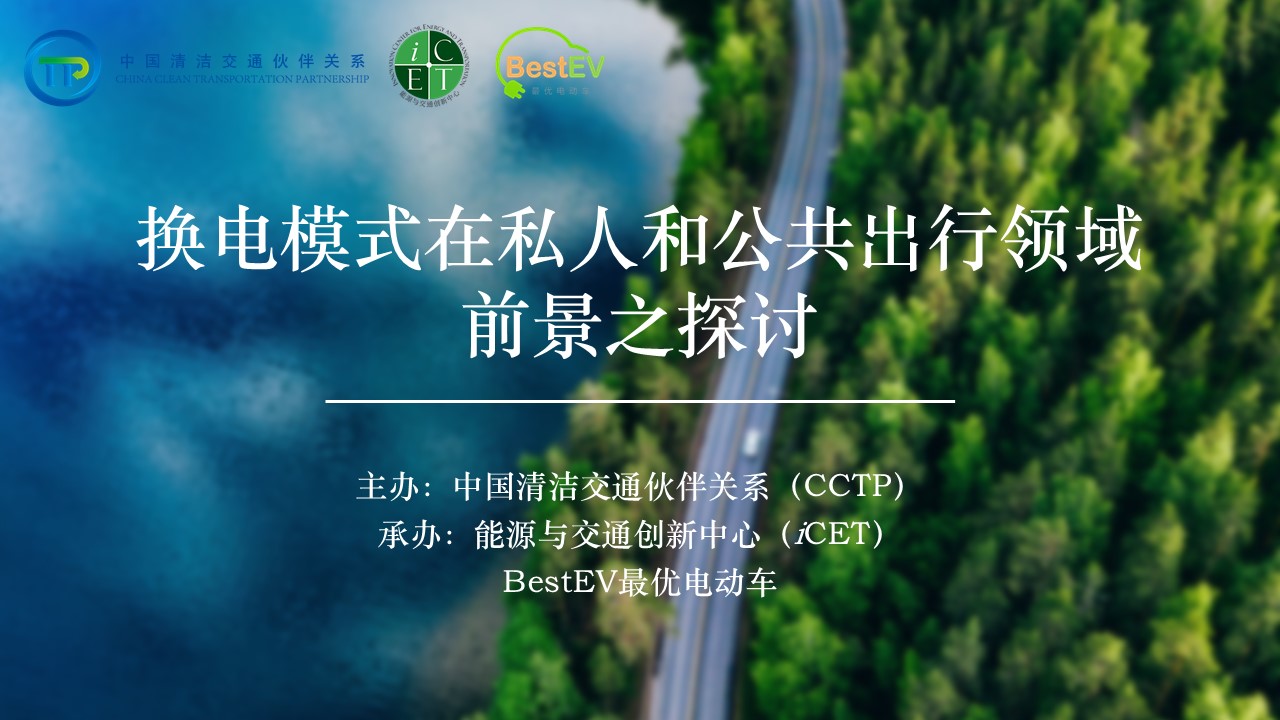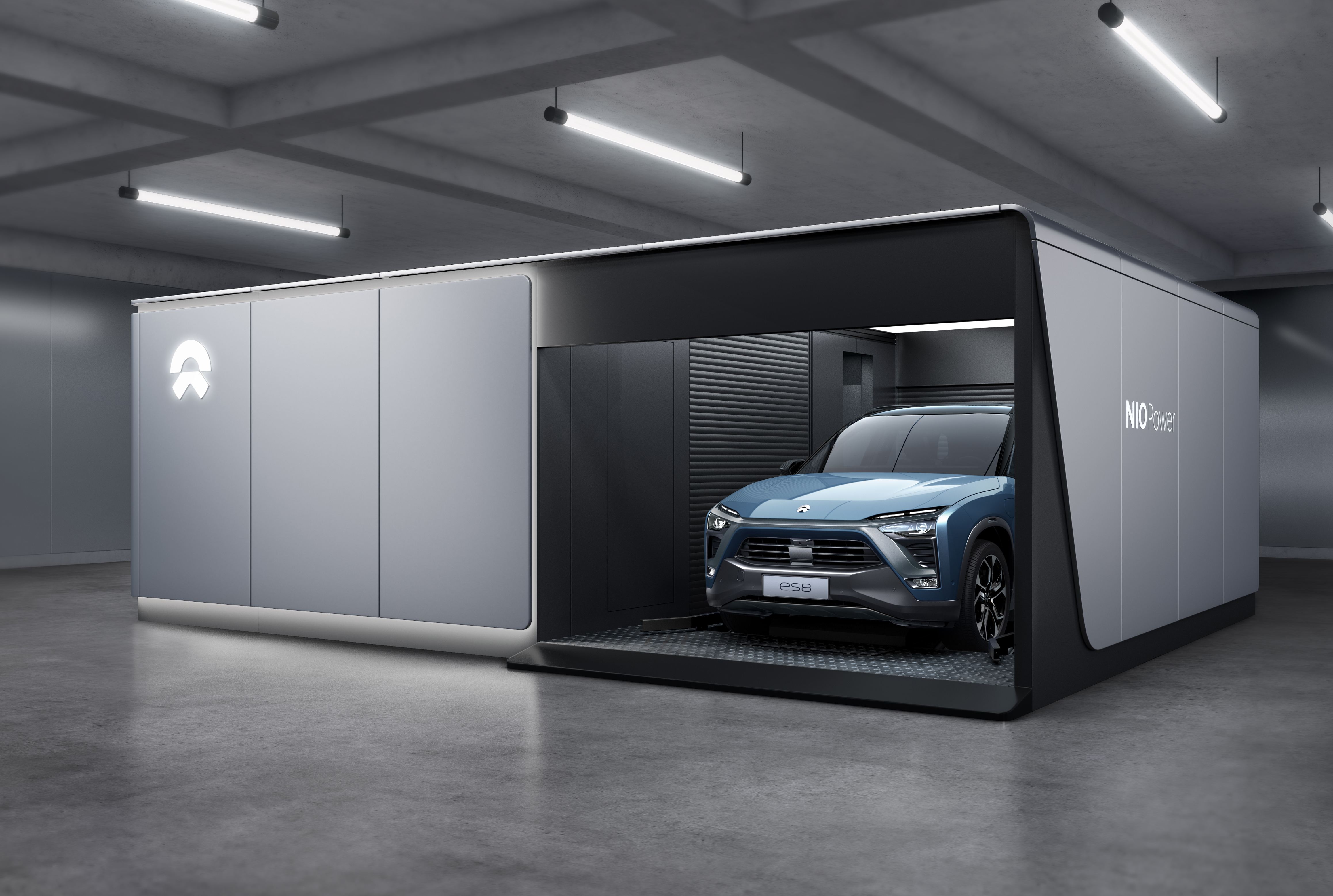|
Topic background

With the
steady advance in new energy vehicles (NEVs), the advantages and disadvantages
of charging mode are gradually revealed. For example, compared with the
promotion of passenger vehicles and electric bus, new energy taxi lags behind
relatively for the constraints of endurance mileage, numbers of charging pile
and service time. Therefore, the “Development Plan of New Energy Automobile
Industry (2021-2035)” (draft for comments) clearly pointed out that in terms of
the form of energy supply, “slow charging should be taken as the primary
consideration, fast charging as the support, and encourage the application of
battery-swapping mode.” Battery-swapping mode, as one of the exploration modes
for the development of NEVs, has been widely used in Beijing, Xiamen and other
pilot cities, which has attracted widespread attention. At the same time, the
national level to accelerate the construction of new infrastructure planning
indicates that the construction of supporting infrastructure for new energy
vehicles will be one of the priorities, which provides an opportunity for the
laying of charging and switching stations.
Based on
the current situation, there are still many areas worth discussing about the
electric vehicle battery-swapping mode. Does the swapping mode and the charging
mode conflict? Can it be dual-track parallel and develope simultaneously?
Compared with the charging mode, what are the advantages and disadvantages of
the battery-swaping mode? From the perspective of pilot cities, How is the
development of electric vehicle battery-swapping mode in private and public
mobility? What is the status of policy support for electric vehicle switching
mode? What challenges do car companies, switching stations, buses and taxi
drivers face?
Discussion Session
The salon
was introduced by Dr. Feng An, Executive Director of the CCTP and Executive
Director of the iCET. Ms. Wenwen Wang, host of this salon and Senior Manager of
the Clean Transportation Program at iCET, pointed out that in the promotion of
NEV, the battery-swapping mode once dominated the market in the early stages,
however the charging mode now becomes the main player in the commercialization
stage of EVs. With the acceleration of new infrastructure and the mention of
"battery-swapping" in government documents, it is a good opportunity
to discuss the challenges and prospects of battery-swapping mode in various
fields in the context of the overall trend of electrification. The meeting was
led by Dr Cheng Li, Researcher from the China Academy of Science, Mr. Yonghe
Huang, Chief Expert of China Automotive Technology and Research Center Co.,
Ltd. (CATARC), Director of China Automotive Strategy and Policy Studies Center,
and Mr. Yi Lu, Vice General Manager of Beijing Aulton Investment Co., Ltd.. Dr
Li discussed the current status and development of the battery-swapping mode in
the public sector, especially the application of the battery-swapping taxis.
Mr. Yonghe Huang introduced the key issues facing the battery-swapping mode and
provided suggestions, Mr. Yi Lu discussed the battery-swapping mode to empower
the new energy vehicle industry from the perspective of the enterprise.
In the
roundtable discussion, Ms. Wenwen Wang showed the results of the
“Battery-Swapping Mode Acceptance Survey” initiated by the BestEV project to
the public and the survey results of the “Prospects for the Development of EV
Battery-Swapping Modes” filled by the present experts. Ms. Yuchi Liu,
Battery-swapping Business Director and Senior Product Manager of NIO Inc., Mr.
Rui Zhou, Marketing Planning Manager of Yiyi New Energy Technology Co., Ltd.,
Mr. Xiao Yan,Chef Scientist and Founder of Shanghai Makesens Technology Co.,
Ltd., Mr. Jie Yang, Project Manager of Data Research Department of Shanghai
Electric Vehicle Public Data Collection, Monitoring and Research Center. Mr.
Liang Nie,President of Hangzhou First Technology Engineering Co., Ltd., and Mr.
Yuanchun Liu, Section Chief of Regulation and Certification Department of BAIC
BJEV Co., Ltd.., discussed the promotion and application, development status
and existing problems of the mode respectively.

In the
roundtable discussion, Ms. Wenwen Wang showed the results of the
“Battery-Swapping Mode Acceptance Survey” initiated by the BestEV project to
the public and the survey results of the “Prospects for the Development of EV
Battery-Swapping Modes” filled by the present experts. Ms. Yuchi Liu,
Battery-swapping Business Director and Senior Product Manager of NIO Inc., Mr.
Rui Zhou, Marketing Planning Manager of Yiyi New Energy Technology Co., Ltd.,
Mr. Xiao Yan,Chef Scientist and Founder of Shanghai Makesens Technology Co.,
Ltd., Mr. Jie Yang, Project Manager of Data Research Department of Shanghai
Electric Vehicle Public Data Collection, Monitoring and Research Center. Mr.
Liang Nie,President of Hangzhou First Technology Engineering Co., Ltd., and Mr.
Yuanchun Liu, Section Chief of Regulation and Certification Department of BAIC
BJEV Co., Ltd.., discussed the promotion and application, development status
and existing problems of the mode respectively.
Mr. Huiming
Gong, Director of CCTP Executive Committee and Director of Energy Foundation
Transportation Program, concluded this meeting. The speech put forward the
problems that should be considered in the future development of the
battery-swapping mode, encouraged experts and scholars to actively participate
in the research on battery-swapping mode, and interact with industry
practitioners to communicate more about the problems faced in the actual
operation, and finally put forward the hope for better development of the
battery-swapping mode in the future.
The guests
of this workshop come from the following institutions : (in no particular
order)
China
Academy of Transportation Sciennce
Energy
Research Institute of National Development and Reform Commission
Vechicle
Emission Control Center of the Ministry of Ecology and Environment
China
Automotive Technology and Research Center
China
Electric Vehicle Charging Infrastructure Promotion Alliance
Beijing New
Energy Vehicle Development and Promotion Center
Shanghai
Electric Vehicle Public Data collecting, Monitoring and Research Center
Beijing
Aulton New Energy Investment Co., LTD
Beijing
Baic BJEV Co., LTD.
NIO
Automobile
Geely
Technology Group Ease New Energy
Shanghai
Makesens Energy Storage Technology
Hangzhou
Botan Technology Engineering Co.
Contemporary
Amperex Technology Co., LTD.
Nissan
Group of China
Energy
Foundation
Innovation
center for Energy and Transportation
|

